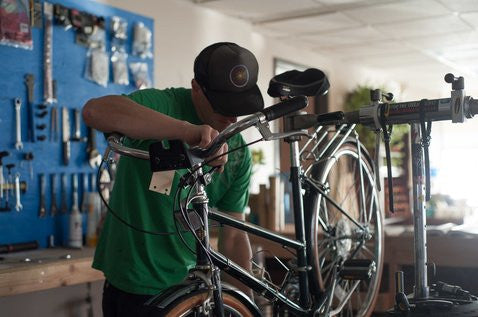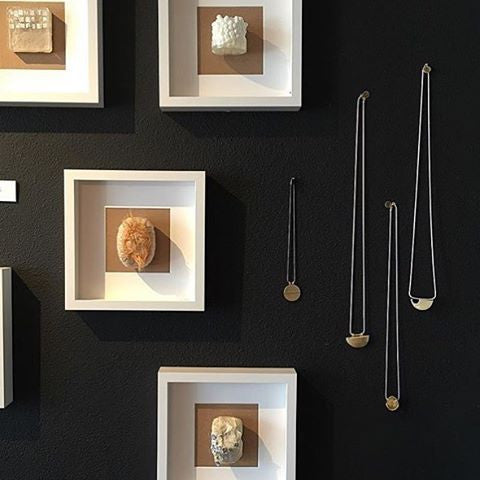We’ve all heard the expression that you shouldn’t put all your eggs in one basket. The same could be said for business — having multiple income streams from multiple sources makes for a healthier bottom line. That’s one reason having services as the one and only sales engine of your business can potentially inhibit growth and profitability.
Granted, service businesses certainly have their advantages. For example, service-based businesses have the unique opportunity to establish true, one-one-one relationships with customers. And that regular interaction builds loyalty and trust.
But even businesses that traditionally only sell services (writing, marketing consults, hairdressing, tattooing, etc.), can broaden their value proposition to customers with retail. With retail sales accounting for more than $22 trillion worldwide every year, service-based businesses have the chance to capitalize on the existing relationships with their clientele. Incorporating relevant products, i.e. a retail component to your business, allows you to monetize those interactions with your customers and increase their customer lifetime value.
Let’s look at an example: If you wanted to double revenue in your pet grooming business, you’d have to double the amount of time your employees are working or increase the price of your services.
If you want to double revenue at your pet grooming business/pet supply store, you can find ways to do that by simply adding inventory — which a more profitable option than onboarding new team members. This is added value for your customers and a holistic experience with your brand.
Not sure how this could apply for your own business? Let’s talk real-life examples: From a salon that sells worldly treasures to a jeweler-turned-graphic designer, these five entrepreneurs have had big wins by incorporating products and services into their business model.
World Gate Jewelers
Service: Hair salon
Retail: Jewelry and accessories
The Opportunity:
Business owner and world traveler Diva Poulos has been operating her thriving hair salon for the past two decades, and it’s now evolved into an equally successful retail pop-up shop.
“I teach and travel all over the world as a hairdresser. When we dressed our models, we found accessories to be the hard part,” Poulos says. “So, I would go out and shop. I had a passion for it.”
Two and a half years ago, Poulos officially debuted the retail side of her business: a jewelry and accessory pop-up shop at the front of her salon.
“It took off,” Poulos says.“We’re full retail now.”
Her salon now not only offers hair styling services, but also sells jewelry, accessories, haircare, skincare, and makeup products for customers to buy into the lifestyle component of her brand.
Located on the busy Market Street in San Francisco, Poulos credits retail with drawing customers in. But one surprising effect it had on her business was the impact it had on her existing clientele — they keep returning to browse new treasures even when they don’t need their hair styled.
You wouldn’t think jewelry or accessories would cause that,” Poulos says. “People want to see what you’re bringing in next.
Poulous keeps the displays full and colorful, which she says attracts more interest. “It’s like eye candy.”
No. 1 Challenge:
“If your inventory isn’t done properly or things aren’t properly tagged, that’s going to definitely going to cause problems,” Poulos says.
Service-based business owners might not have a ton of experience in handling products. You have to determine a pricing strategy, find suppliers to source your products, manage inventory, and so much more.
And you also have to consider the customer experience, particularly, the checkout process. “You need reliable Internet,” Poulous says. “Time is of the essence when people are purchasing products.”
For Poulos, she says using a card reader “makes things much more speedy” for the customer, especially walk-in clients.
She’s also able to see detailed reports, which helps her analyze trends over time and identify insights to inform inventory management.
Laughing Buddha
Service: Tattoos and body piercings
Retail: Body jewelry
The Opportunity:
In Christy Lillard’s case, she inherited a services-and-retail business. Six years after opening her first tattoo parlor in 2009, Lillard purchased Laughing Buddha, which had been in business for nearly 20 years.
Unlike her first tattoo shop, Laughing Buddha also did body piercings and sold body jewelry. Previously, Lillard only did tattoos and had no retail component to her business.
But purchasing a business that already had success with the combination of services and retail, Lillard realized the opportunity quickly.
“The body jewelry that goes along with piercing is a huge part of the business … and our profit,” Lillard says. “There’s really no ceiling on it.”
Profit aside, selling body jewelry has also allowed her to elevate Laughing Buddha. “The in-store sales have transformed after sales training for front-end staff and new, high-end options.”
In fact, the retail side of her business has been so successful that Lillard plans to incorporate ecommerce as well. “We won’t be limited to just our [geographical] area with online sales,” she says.
No. 1 Challenge:
Like many business owners who start out with a service-based business, Lillard has found it challenging to understand her products and inventory.
“There are thousands of different styles and sizes [of body jewelry]. There are dozens of companies and levels of quality,” she says. “I’m just scratching the surface after two years or learning.”
Her advice? “Get the best POS system you can find that has really detailed reports. It will take a long time to set it up with all your [products], but it will pay off a million times over once it’s giving you valuable information,” she says.
TRY SHOPIFY POS: Want to give Shopify's point of sale systems a test run? Start a free Shopify POS trial today.
“Then, get a coach like Merchant Method to help you read and understand your reports,” Lillard says.
It’s one thing to have the data, but entirely different to glean actionable insights from it.
Container Collective Yoga and Bikes


Service: Yoga
Retail: Yoga- and wellness-related products
The Opportunity:
For Brittany Hopkins, owner of Container Collective, incorporating retail into the yoga side of her business came organically.
“Many clients came into the studio with lousy yoga mats, and I wanted to offer them a solution,” she says.
Hopkins found that solution in high-quality yoga mats that she added to her inventory for clients to purchase.
For Hopkins, retail impacted how much her customers spent. Previously, they paid for classes, attended, and left. Now, “existing yoga clients end up buying merchandise since they’re here already.”
No. 1 Challenge:
Uncharted retail territory for service-based business owners can be intimidating — especially when considering inventory.
The biggest challenge is investing in the products and not knowing how long they will sit on the shelf,” Hopkins says.
To counteract this challenge, Hopkins advises you get to know your existing customer base.
“Start with things super-specific to your industry, and know your customer’s price point,” she says. “Our customers typically don’t want to spend more than $35 on a product.”
Start small with products at different price points to test interest and profitability. You could also ask your clients directly about their interest in different products before you purchase the inventory.
Rebekah J. Designs

Service: Graphic design
Retail: Jewelry and jewelry design
The Opportunity:
For Rebekah Jamarillo, the retail component to her business came first. When she started her career as a jeweler, Jamarillo also had a lot of graphic design skills she acquired through classes and a previous job working with print collateral.
Then she had a big idea. “I came up with this concept of taking the elements from a wedding — paper goods, fonts, colors, etc. — and making bridal party jewelry from those elements,” Jamarillo says.
She first did these projects just for friends, and then she put her workon display at a wedding show booth. But she was selling her jewelry, not her paper goods.
Eventually, Jamarillo saw the opportunity to monetize this service. “Instead of being discouraged about [customers] not responding to the jewelry, I started saying yes to designing wedding graphics for them.”
Soon, the design business caught up to her retail business, and Jamarillo has struck the perfect balance.
“The impact has been tremendous. Because of the revenue from a low overhead business like graphic design, I’ve been able to sustain my jewelry business without taking out small business loans,” she says.
No. 1 Challenge:
For Jamarillo, striking the balance of services and retail isn’t always easy. To manage it, she started to be more selective about the graphic design projects she’d take on and keeping the two lines of business separate.
“I no longer need to have my paper goods in the booth as a marketing tool,” Jamarillo says. “The price point for my paper goods also distracted customers from the main reason I had a booth: to sell jewelry.”
Thus, Jamarillo’s approach to her graphic design business is different than her jewelry. “Word-of-mouth is sufficient to sustain the graphic design half of my business,” she says.
That way, she’s able to put her creative energy into making the best products she can — her true passion — and receive inspiration from the small businesses she provides graphic design services to.
Part of finding the balance for Jamarillo has been accepting help when she needs it, and she advises other retailers do the same.
Free Reading List: Hiring and Retaining Retail Staff
Want to vet, hire, and retain top-notch retail employees? Learn how with our free, curated list of high-impact articles.
Get the free guide now“Hiring help, outsourcing, and bartering are the best things you can do. Spending the money to hire someone to photograph your work, assemble your product, sell in your booth, write copy, create business cards and logos, or set up your website — those are the smartest moves you can make as an entrepreneur.”
La Fleur Kitchen and Miroja

Service: Floral and botanical design
Retail: Botanical and home goods
The Opportunity:
Cherie Marquez first started her service-based business as La Fleur Kitchen, a floral and botanical design studio. After establishing a thriving business, she looked to expand.
The services that Marquez offered didn’t allow much beyond the single transaction with her customers. She wanted to find a way to build an ongoing relationship with customers and have more frequent interactions with them.
To accomplish that, Marquez opened Miroja, a brick-and-mortar shop that sells botanical and home goods, a sister business to her successful studio.
“I opened Miroja primarily to give our clients an everyday experience that allowed them to see us beyond a one-time event,” Marquez says.
Having services also builds intrigue among customers who are browsing the retail shop. “Because we can offer both products and services, it allows our customers to think beyond just an everyday purchase.”
Though the businesses are technically separate, there is a ton of synergy between the two. “I don’t really think of it being two separate verticals; I think of both as an overall experience,” she says.
No. 1 Challenge:
Expanding your business also means you’ll have more responsibilities. “It’s definitely been more work and upkeep, especially now that there is the storefront component,” Marquez says.
And though Marquez can’t really nail down a single toughest obstacle she’s overcome in her business ventures, she has learned many lessons along the way.
“Do your homework and have a plan that goes beyond budgets and goals.
“Be sure that what you offer is unique on many levels, not just from products or services, but also the overall experience. Know who your competitors are, but never focus on them or your business will never grow.”
“Put the focus on what you want your clients to walk away with. How do they remember you and how will they come back? Marketing and your brand [are extremely] important, and from there, it’s all about the experience.”
Make Services and Retail Work in Your Business
Regardless of which comes first, approaching your business from two angles allows you to diversify your income stream and build more meaningful relationships with your customers.
Which partnerships of services and retail have you seen that work well? Share your thoughts in the comments below.

